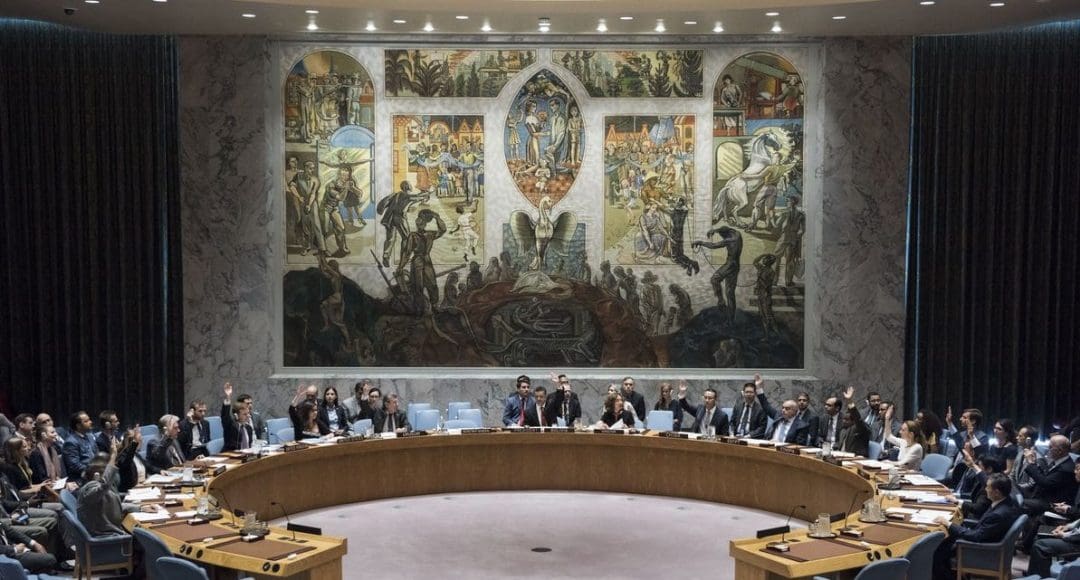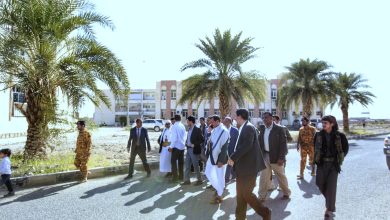Houthi Militias Blamed for Yemen’s Economic and Humanitarian Crisis
A recent report from the United Nations Security Council’s expert team on Yemen has placed the blame for the deteriorating economic and humanitarian conditions in Yemen squarely on the Iranian-backed Houthi militias. The report highlights the group’s obstruction of peace efforts and their role in prolonging the ongoing conflict.
Irregularities and Crimes by Houthi Militias
The latest findings reveal the extent of chaos and criminal activities perpetrated by the Houthis in areas under their control. The report details the growing military support from Iran during the past months, exacerbating the situation.
Disruption of International Trade
Covering the period from September 1, 2023, to July 31, 2024, the report notes that regular threats and attacks by the Houthis on vessels navigating the Red Sea have severely disrupted international trade and the Yemeni economy. Since mid-November 2023, these actions have led to increased shipping and insurance costs, delaying the arrival of goods to Yemen. Consequently, prices for various products, especially essential goods, have surged.
Oil Export Ban and Economic Losses
The report also highlights the impact of the Houthis’ continued ban on crude oil exports, which has resulted in a staggering 43% loss in revenue. This decline has contributed to the depreciation of the Yemeni rial and a sharp rise in inflation. As a result, the government’s ability to provide basic services, such as salaries, electricity, water, and education, has been severely compromised.
Exploitation of Government Institutions
The Houthis have exploited government institutions to fund their military activities. The report outlines how they have employed numerous illegal measures to create substantial resources for their purposes. They have taken control of the telecommunications sector and schools in their regions, demanding money from citizens to bolster their aerial capabilities through drones and coastal defense.
External Financial Operations
Investigations reveal that the Houthis utilize various networks of individuals and entities across multiple jurisdictions, including Iran, Turkey, Djibouti, Iraq, and Yemen, to finance their activities. They rely on numerous banks, shell companies, and financial facilitators to secure foreign currency for imports.
Smuggling Operations at Hodeidah Port
The report presents evidence of the Houthis’ suspicious activities at the Hodeidah port, highlighting their tactics to evade inspections by the United Nations. These include transferring goods between ships and shutting down automated systems that identify vessels, thereby limiting the detection of ports visited and routes taken.
Humanitarian Aid Obstruction
The report confirms that the port has become a hub for organized smuggling of illegal materials, including weapons, drugs, communication equipment, pesticides, and banned pharmaceuticals. The Houthis’ attacks on essential transport lines have significantly hindered humanitarian aid access to Yemen.
Violations Against Humanitarian Workers
The report outlines the violations and arbitrary detentions perpetrated by the Houthis against humanitarian workers in their controlled areas. These actions have led many humanitarian service providers to avoid working in Houthi territories due to safety concerns.
Exploitation of Regional Events
The report accuses the Houthis of exploiting regional events, particularly the Gaza situation, to stabilize their regime and gain popularity amid worsening economic conditions. It challenges the Houthis’ claims of targeting vessels linked to Israel, asserting that investigations show they randomly attack ships in the Red Sea and Gulf of Aden.
Peace Process Challenges
The report discusses the efforts of the United Nations Special Envoy for Yemen to advance the peace process, including the announcement of a roadmap for peace in December 2023. However, these attempts have encountered significant regional developments that have stalled progress.
Human Rights Violations
The report details the Houthis’ violations of international humanitarian law and human rights, including indiscriminate attacks on civilians, arbitrary detentions, enforced disappearances, torture, and gender-based violence. The recruitment of child soldiers and persecution of minorities further exacerbate the crisis.
Recruitment of Women and Children
Confidential sources have informed the investigation team about an increase in the recruitment of girls by the Houthis’ women’s wing, known as the “Zainabiyat.” Reports indicate that some abducted girls face forced domestic labor, while others fall victim to sexual violence.
Targeting Opponents and Businesses
The report also highlights the Houthis’ systematic targeting of businesses and individuals opposing them. They regularly freeze and seize assets under the guise of a “judicial guardian” system. Notably, the Houthis have confiscated $100 million from Yemen Airways and detained its aircraft at Sana’a Airport while holding passengers.
Social Media Exploitation
Finally, the report indicates that the Houthis exploit social media platforms to violate sanctions imposed under Security Council resolution 2140. They use these platforms to sell weapons, solicit financial support, and incite hatred based on nationality, ethnicity, or religion. The report urges relevant entities and social media platforms to take immediate and appropriate measures to prevent these violations.
The findings of this report underscore the urgent need for international attention and action to address the ongoing crisis in Yemen and hold the Houthi militias accountable for their actions.
To follow the news in Arabic

 Al-Aradah discusses military and security developments with the UN envoy’s military advisor and their impact on the peace process.
Al-Aradah discusses military and security developments with the UN envoy’s military advisor and their impact on the peace process. Tariq Saleh discusses the latest developments with the UAE ambassador.
Tariq Saleh discusses the latest developments with the UAE ambassador. Mareb officials and the Technical Education Authority launch the furnishing of the Community College, funded by Kuwait.
Mareb officials and the Technical Education Authority launch the furnishing of the Community College, funded by Kuwait. Workshop on violence against girls concludes in Aden, focusing on awareness and prevention strategies.
Workshop on violence against girls concludes in Aden, focusing on awareness and prevention strategies. Training customs personnel in Qatar on monitoring strategic goods.
Training customs personnel in Qatar on monitoring strategic goods. Al-Thuqali discusses efforts to document the Socotri language and directs preparations for the heavy vehicles site at the port.
Al-Thuqali discusses efforts to document the Socotri language and directs preparations for the heavy vehicles site at the port.